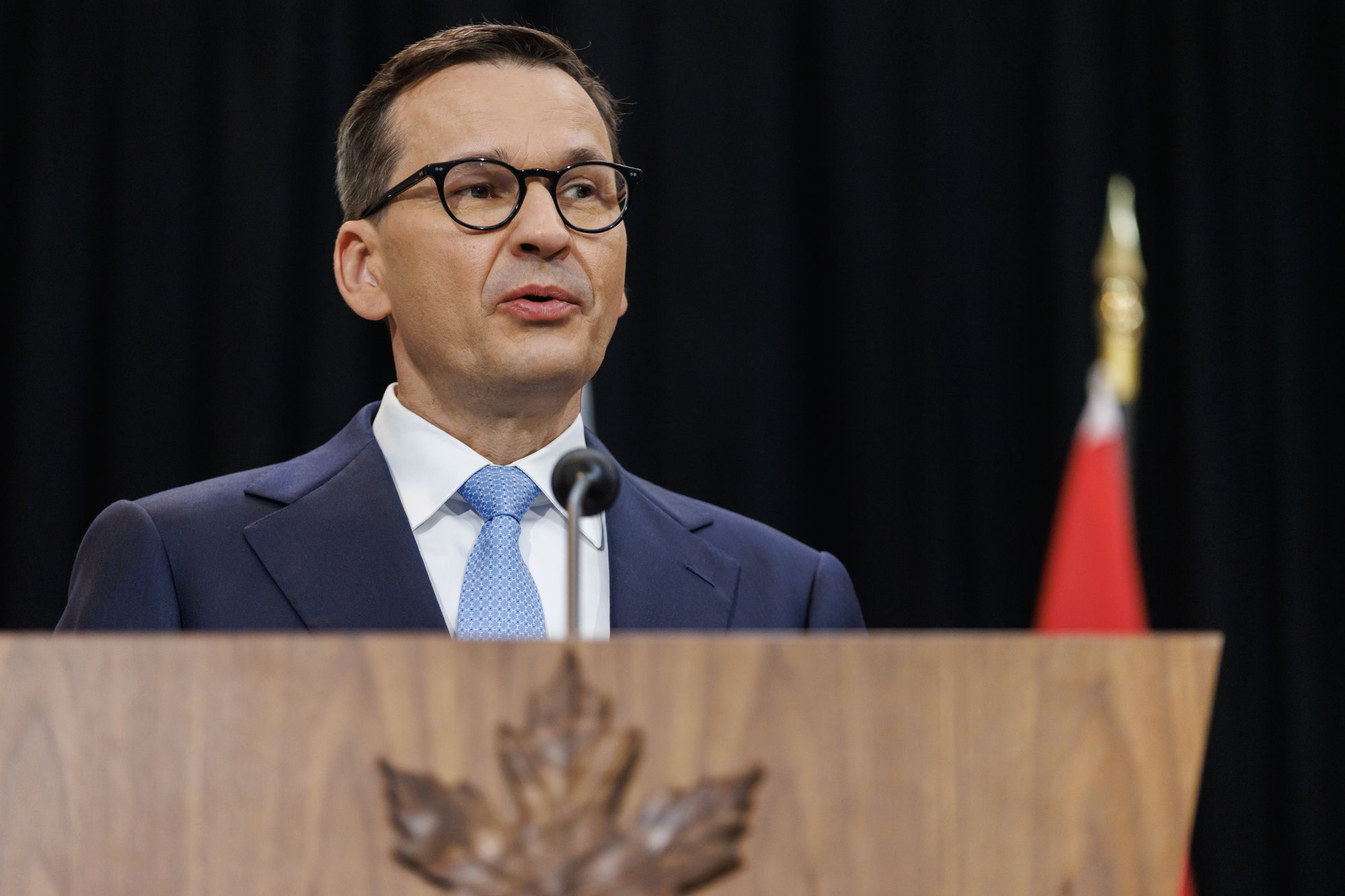Polish PM says Zelensky should 'never insult Poles again'

Polish Prime Minister Mateusz Morawiecki said that Ukrainian President Volodymyr Zelensky should "never insult Poles," referring to his statements at the U.N. General Assembly, the Polish Press Agency reported on Sept. 22.
"I want to tell Ukrainian President Volodymyr Zelensky never to insult Poles again," Morawiecki said during a meeting with the residents of the Polish town Świdnik.
"Protecting Poland's good name is not only my duty and honor, it is also the most important task of our government."
During his speech at the U.N. headquarters in New York, Zelensky called out the "alarming" behavior of Ukraine's partners regarding the grain import bans. The president said these nations are inadvertently aiding Russia by their actions.
While not naming specific countries, the statement came shortly after Poland, Hungary, and Slovakia said they would prolong the import restrictions.
In protest to Zelensky's statement, the Polish government summoned Ukraine's Ambassador to Poland Vasyl Zvarych.
Morawiecki also said during his Świdnik meeting that Russia's war against Ukraine affects the security of the entire Europe.
"We know this and help by sending weapons, by organizing the arms shipments," the prime minister said, stressing that Poland is now, first of all, focusing on rearming itself.
Morawiecki emphasized that the logistics hub in Rzeszów for allied support flowing to Ukraine will remain operational.
The head of Poland's government sparked a controversy when he told Polsat News on Sept. 20 that Warsaw is not sending more weapons to Ukraine as it is shifting focus on restocking its own military arsenal.
Polish officials later clarified his statements by saying that Poland continues to supply arms and ammunition that are part of previously agreed deliveries.
The news outlet RMF24 argued that Warsaw simply ran out of arms it could additionally provide without jeopardizing its own security.
Ukraine's dispute with Poland, traditionally one of its most ardent supporters in its struggle against Russian aggression, was sparked by Warsaw's decision to extend the import ban on Ukrainian grain products past its expiration date set by the EU on Sept. 15.
The EU instituted the measure in May at the request of Poland, Hungary, Slovakia, Romania, and Bulgaria, who feared that the influx of cheaper Ukrainian products would put pressure on their farmers.
In response to Poland's decision, Kyiv said it would sue Warsaw in the World Trade Organization and also threatened to introduce an embargo on onions, tomatoes, cabbage, and apples from Poland.
The dispute arose just as Poland heads for a parliamentary election in October. The governing Law and Justice (PiS) party hopes to secure the backing of voters from rural regions who would be most likely affected by the influx of Ukrainian grain.













